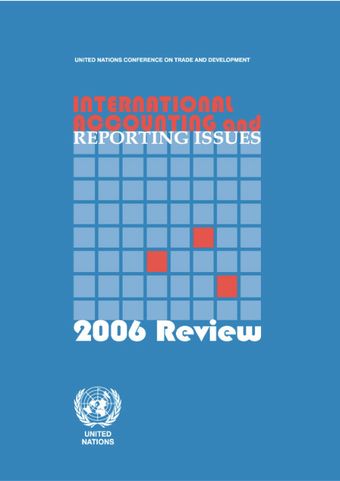Review of practical implementation issues of International financial reporting standards: Case study of India

- Author: United Nations Conference on Trade and Development
- Main Title: International Accounting and Reporting Issues - 2006 Review , pp 49-68
- Publication Date: January 2008
- DOI: https://doi.org/10.18356/e84fcc7d-en
- Language: English
India has in recent years experienced strong economic growth, rising foreign exchange reserves, falling inflation, global recognition of its technological competence, and the interest shown by many developed countries to invest in the engineers and scientists produced in the country including setting up of new Research and Development centres. Above all, as the largest democracy in the world, India has a reputation for providing leadership for one billion people in a country with different cultures, languages and religions. India’s technological competence and value systems are highly respected. Foreign institutional investors find investing in India attractive. Indians are also investing in companies abroad and are opening new business ventures. The Government of India is also committed to economic development by ensuring a growth rate of 7 to 8 per cent annually, enhancing the welfare of farmers and workers and unleashing the creativity of the entrepreneurs, business persons, scientists, engineers and other productive forces of the society. Today, India is one of the fastest growing economies in the world with a compounded average growth rate of 5.7 per cent over the past two decades. The Government of India has plans to transform India into a developed nation by 2020.
-
From This Site
/content/books/9789211560626c013dcterms_title,dcterms_subject,pub_keyword-contentType:Journal -contentType:Contributor -contentType:Concept -contentType:Institution105


